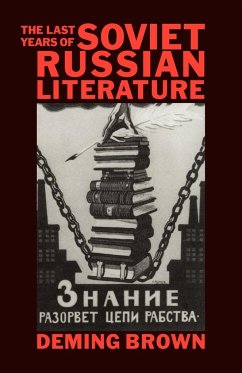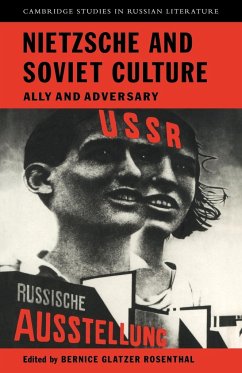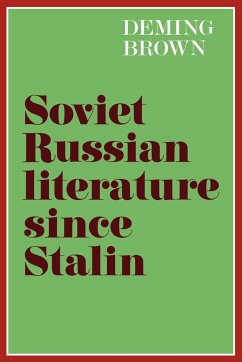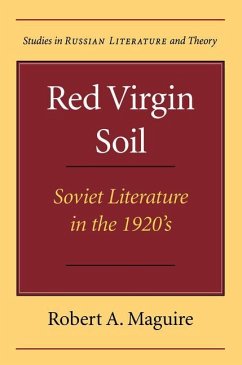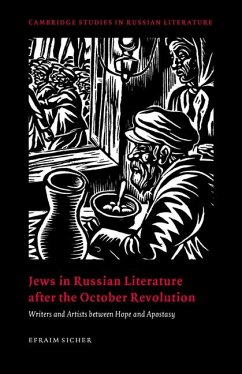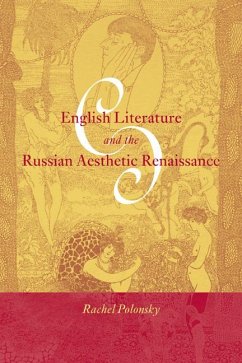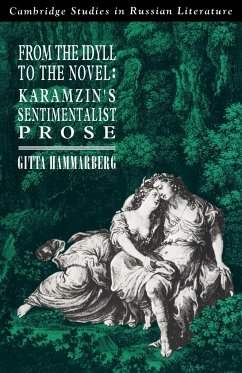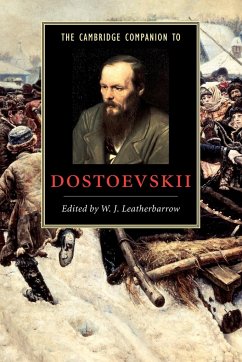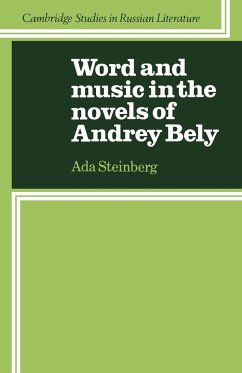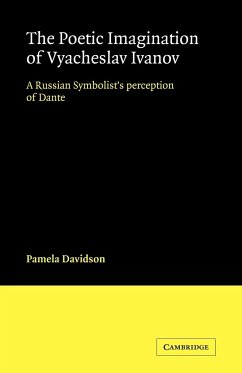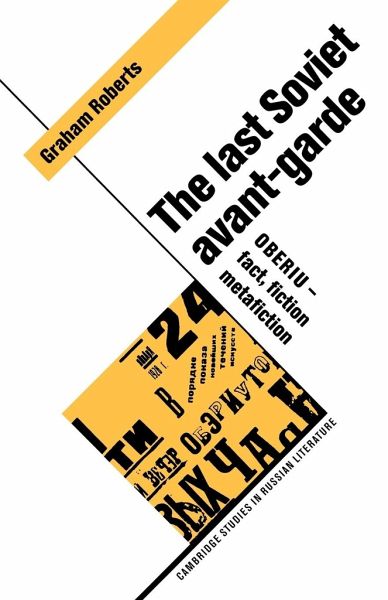
The Last Soviet Avant-Garde
Oberiu - Fact, Fiction, Metafiction
Herausgeber: Kelly, Catriona; Cross, Anthony

PAYBACK Punkte
31 °P sammeln!
A comprehensive study of the OBERIU group of avant-garde Soviet writers.This is a comprehensive study of a group of avant-garde Soviet writers active in Leningrad in the 1920s and 1930s who styled themselves OBERIU, 'The Association for Real Art'. Graham Roberts re-examines commonly held assumptions about OBERIU, its identity as a group, its aesthetics and its place within the Russian and European literary traditions. He focuses on the prose and drama of group members Daniil Kharms, Aleksandr Vvedensky, and Konstantin Vaginov; he also considers work by Nikolay Zabolotsky and Igor Bakhterev, as...
A comprehensive study of the OBERIU group of avant-garde Soviet writers.
This is a comprehensive study of a group of avant-garde Soviet writers active in Leningrad in the 1920s and 1930s who styled themselves OBERIU, 'The Association for Real Art'. Graham Roberts re-examines commonly held assumptions about OBERIU, its identity as a group, its aesthetics and its place within the Russian and European literary traditions. He focuses on the prose and drama of group members Daniil Kharms, Aleksandr Vvedensky, and Konstantin Vaginov; he also considers work by Nikolay Zabolotsky and Igor Bakhterev, as well as the group's most important 'fellow-traveller', Nikolay Oleinikov. He places OBERIU in the context of the aesthetic theories of the Russian formalists and the Bakhtin circle. Roberts concludes by showing how the self-conscious literature of OBERIU - its metafiction - occupies an important transitional space between modernism and postmodernism.
Review quote:
'- a triumph of postmodern attitudes with regard to the Stalinist past.' Times Literary Supplement
'This book reveals perhaps for the first time the significance and achievement of a number of writers more of less closely connected with the OBERIU group centred in Leningrad in the late 1920s and the 1930s.' New Theatre Quarterly
Table of contents:
Acknowledgements; Notes on transliteration and convention; Introduction: OBERIU - the last Soviet avant-garde; 1. Authors and authority; 2. Rereading reading; 3. Language and representation; Conclusion: OBERIU - between modernism and postmodernism?; Notes; Bibliography; Index.
This is a comprehensive study of a group of avant-garde Soviet writers active in Leningrad in the 1920s and 1930s who styled themselves OBERIU, 'The Association for Real Art'. Graham Roberts re-examines commonly held assumptions about OBERIU, its identity as a group, its aesthetics and its place within the Russian and European literary traditions. He focuses on the prose and drama of group members Daniil Kharms, Aleksandr Vvedensky, and Konstantin Vaginov; he also considers work by Nikolay Zabolotsky and Igor Bakhterev, as well as the group's most important 'fellow-traveller', Nikolay Oleinikov. He places OBERIU in the context of the aesthetic theories of the Russian formalists and the Bakhtin circle. Roberts concludes by showing how the self-conscious literature of OBERIU - its metafiction - occupies an important transitional space between modernism and postmodernism.
Review quote:
'- a triumph of postmodern attitudes with regard to the Stalinist past.' Times Literary Supplement
'This book reveals perhaps for the first time the significance and achievement of a number of writers more of less closely connected with the OBERIU group centred in Leningrad in the late 1920s and the 1930s.' New Theatre Quarterly
Table of contents:
Acknowledgements; Notes on transliteration and convention; Introduction: OBERIU - the last Soviet avant-garde; 1. Authors and authority; 2. Rereading reading; 3. Language and representation; Conclusion: OBERIU - between modernism and postmodernism?; Notes; Bibliography; Index.





